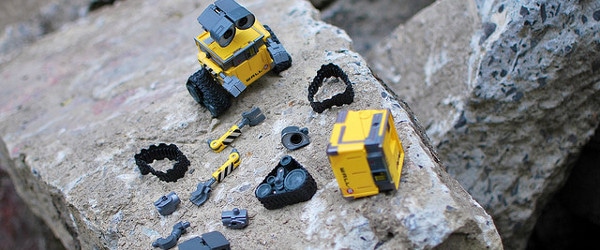Communicating your science to a lay audience is different than giving a talk to other scientists. An urban legend says that when Michael Faraday verified the relationship between electricity and magnetism, he was asked to present his evidence to the prime minister of England. So, he had his coils arranged and he just moved a magnet through them. At the other side of the room, a small needle moved up and down, demonstrating that a shifting magnetic field produces an electric field. All the scientists present in the room were astonished by his discovery, but the prime minister came forth and asked a question that I am sure you have heard a lot too. “What is the use of it?”, then Faraday looked at him and asked him. “What good is a newborn baby?” receiving his silence as an answer.
This story demonstrates that in the end, you have to be able to think from a listener’s point of view to convey your message. Then maybe he can answer his own question.
It’s Hard to Communicate Your Science to the Public
In recent years, scientists have realized that is imperative to make their research understandable to decision-makers and the public.
It’s no easy task being a scientist now (well, really, when was it easy?). Besides possessing the knowledge relevant to your field, you must also have good writing skills, be familiar with informatics and statistics, be at least adequate in presentations and interpersonal relations, acquire funding, and be a teacher and/or mentor. Finally, you must be good at communicating your science to the public with…interest!
The last part is frequently the most difficult.
Explaining your work to the public, especially if it involves presenting basic research to an audience not familiar with your field, will always be hard—but it is extremely important. In fact, many scientific funding programs now require you to disseminate your research in lay terms.
How to Communicate Your Science
Theoretical physicists and astrophysicists claim they are the best in communicating their science to the public. As a result, they are getting the most funds by far. Other fields like biology or even medicine, in comparison, are struggling. Physicists are so good they can explain the most complicated things (like black holes, gravity waves, celestial phenomena) in the most simplistic ways. They skip all the middle equations, theorems, and general background knowledge while adding a sense of wonder—making it fun to learn. Their audiences don’t ask “What is the use of knowing it?”. So if you want to learn from someone, make them your example!
In my opinion, the best advice is:
- Pretend that you have young people in front of you—even kids. Try to tap into your audience’s child-like wonder of how the world works.
- Keep it simple and explain the cause and effect phenomenon to raise awareness for your work.
- Don’t be an elitist by trying to sound smart.
Remember: smart questions and reactions stem from people eager to learn and who are fascinated by HOW STUFF WORKS (like you when you were young). They do not stem from people thinking about the end product and how to market it. If you impress a kid with your project, then you have succeeded.
Science Communication Is Difficult But Necessary
Public support for research is often hard to get, but this doesn’t mean that it should be neglected. The public should always be aware of how important science is for society, and the scientific community owns this responsibility.
Of course, there are also science journalists who try to bridge that gap. Year by year they make remarkable progress by trying to squeeze the “importance for the general public” out of a scientific paper. But these efforts remain inadequate to cover all of today’s research.
So, there it is: how and why you should develop your interpersonal skills better. In this brief article, I tried to stimulate you and give you the reasons why you shouldn’t neglect it. Succession is up to you!
“OK, well, sometimes, science is more art than science, Morty. A lot of people don’t get that”—Rick Sanchez to his grandson Mortimer Smith from the show Rick and Morty







